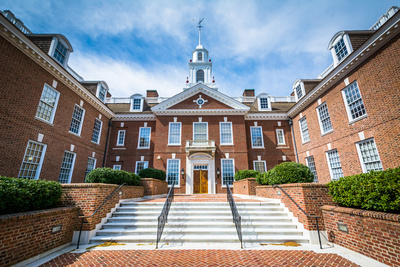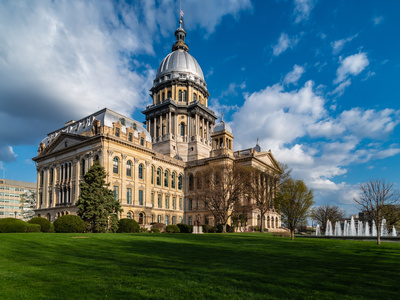-000055-400px.jpeg)
Tax & Budgets, Health Care & Wellness
Here’s How States Are Responding to Trump’s One Big Beautiful Bill Act
October 8, 2025 | Abbie Telgenhof, Morgan Scarboro
-92643f-1200px.jpeg)
Key Takeaways:
The beginning of July marks the beginning of most states’ fiscal years, but this year, four states still have not enacted their final budgets. Massachusetts, North Carolina, Pennsylvania, and Virginia are all currently stuck in policy limbo as lawmakers try to overcome the political and policy differences necessary to push their respective budgets over the finish line. In Massachusetts, where late budgets have become the norm, Democrats – who control both chambers – are at odds over a number of policies, including the state lottery and a free school meals program. The debate between Republicans in the North Carolina House and Senate mostly revolves around how to provide tax relief and permitting of non-tribal casinos. Virginia’s budget is not technically late because they are on a biennial calendar, but with $3.6 billion in unspent funds, all sides are seeking an amended budget. (Pennsylvania will receive a more thorough examination below.)
While there are economic risks associated with not having a timely spending plan in place, late budgets tell us more about the political health of a state than its economic health. In the decade following the Great Recession, late budgets were more common than they have been since COVID, but even at the height of this trend, policy experts weren’t particularly concerned. As a Moody's analyst told Governing.com in 2017, having a late budget “isn’t necessarily a concerning factor, but the underlying causes could be.” If a state is having a difficult time putting together a budget due to a multi-billion revenue imbalance or a significantly underfunded pension system, the root cause is generally more concerning than the fact that the legislation aimed at resolving these issues is past due.
Illinois is the exception that proves this rule. In 2015, then Governor Bruce Rauner (R) and the Democratically-controlled legislature took more than two years to pass a budget, the longest budget delay in contemporary history. The process dragged on for so long (and was ultimately resolved largely because rating agencies threatened to downgrade the state’s credit rating if a deal did not materialize. So while a late budget can lead to their own fiscal problems, it usually takes an extraordinarily late budget to trigger those effects.
More commonly, prolonged budget stalemates have political ramifications. For example, in Pennsylvania Republican leaders are at odds with Governor Josh Shapiro (D) after the governor removed his support for a conservative school funding measure after the budget passed the GOP-controlled Senate. As a result, while the budget has passed both legislative chambers, Republicans are preventing it from formally reaching the governor’s desk and have signaled that it may not get there until the fall. These political tensions are not only holding up the budget’s enactment, they complicate efforts to reduce the corporate income tax and pass other business tax changes, which the governor ran on and the Republicans supported. These tensions could also have longer-term consequences: Governor Shapiro came into office promising to ease the gridlock that pervaded Governor Tom Wolf’s (D) administration, but this fight could frustrate legislative negotiations going forward.
While cross-party rivalries can often lead to the political tensions that give rise to late budgets, a unified government does not necessarily guarantee orderly fiscal planning. New York’s Democratic trifecta was a month late with their budget as the legislature engaged in a power struggle with Governor Kathy Hochul (D), and in Massachusetts lawmakers are still struggling to come to an agreement on a number of charged policy issues.
Eventually all of these states will enact new spending plans, even if negotiations stretch on for weeks or months. These delays probably won’t cause the states to have their credit ratings downgraded or affect government revenues, but heightened political tensions could impact how (or if) future legislative deals are made.
For more timely insights like this, be sure to sign up for our Morning MultiState weekly morning tipsheet. We created Morning MultiState with state government affairs professionals in mind — sign up to receive the latest from our experts in your inbox every Tuesday morning. Click here to read past issues and sign up.
-000055-400px.jpeg)
October 8, 2025 | Abbie Telgenhof, Morgan Scarboro

August 5, 2025 | Morgan Scarboro

July 30, 2025 | Bill Kramer